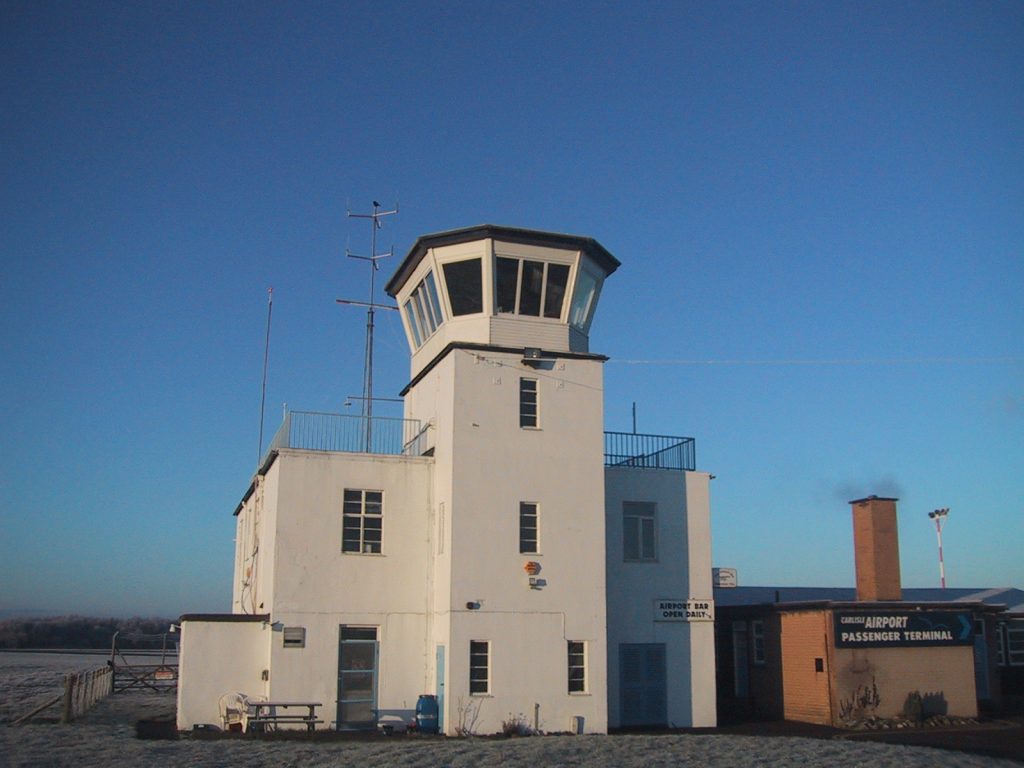The All-Party Parliamentary Group (APPG) for General Aviation has claimed an early win in its battle to protect GA airfields from housing development, announcing that a safeguarding measure has been included in the latest draft version of the UK Government’s National Planning Policy Framework (NPPF). However, while the APGG has welcomed the announcement, chairman Grant Shapps MP has said that the Group still harbours concerns over GA airfield protection and asserts that further assurance is required.

Will Carlisle airport be part of a ‘strategic network’ of GA airfields?
The draft NPPF, which provides planning guidance to planners, developers and councils, states that planning policies should “recognise the importance of maintaining a national network of general aviation facilities – taking into account their economic value in serving business, leisure, training and emergency service needs, and the Government’s General Aviation Strategy”.
Shapps says that while this demonstrates that Government “recognises the enormous contribution General Aviation makes to high-tech jobs and the national economy”, the new guidance nonetheless fails to address the current classification of GA airfields as brownfield sites, which makes them eligible and indeed attractive, in terms of low clean-up costs, for housing development. Moreover, says Shapps, GA airfields continue to be absent from national infrastructure policy.
As reported previously in FTN, prior to a 2003 amendment to planning policy, GA airfields were largely protected from housing development. The Planning Policy Guidance (PPG) of the time stated: “…where the footprint of a building only occupies a proportion of a site of which the remainder is open land (such as at an airfield or a hospital) the whole site should not normally be developed to the boundary of the curtilage. The local planning authority should make a judgement about site layout in this context, bearing in mind other planning considerations.”
An alleged ‘administrative error’ led to this safeguarding being removed from a revised PPG published in 2003 and despite concerted lobbying from both industry and GA-minded politicians in the intervening 15 years, the safeguarding has yet to be reinstated into planning policy.
Formed in February 2017, the APPG for GA has quickly grown to become one of the largest parliamentary groups in Whitehall. Consisting of 124 cross-party MPs and Peers, including 17 Privy Councillors, nine former Cabinet ministers, three former Transport Ministers and one current Party Leader, the APPG is clearly a powerful lobbying group, albeit without any direct legislative power. Influential as it may be, the APPG nonetheless appears to have further battles ahead in its aim to secure definitive safeguarding for GA airfields, given that this is being conducted under a current political climate promoting a ‘broad vision’ need for ‘hundreds of thousands of new homes’ as laid out in a White Paper enacted by the Prime Minister last year.
“Today’s publication of the revised National Planning Policy Framework is welcome. This demonstrates the Government now recognises the enormous contribution General Aviation makes to high-tech jobs and the national economy. This proposed change also gives the sector a much welcomed boost and should encourage the investment necessary to return UK General Aviation to its place as a world leader. It is also good to see the General Aviation Strategy being referenced directly from the National Planning Policy Framework. However, there are disappointments. General Aviation is not yet classified as ’national infrastructure’ and there is a Brownfield classification problem to be addressed in order to complete the changes General Aviation needs to provide STEM jobs and growth for the future,” said Shapps.
Meantime, work continues to define a national network of airfields. The Department for Transport – DfT – has launched a review of what the UK’s strategic network of airfields could be. This is being conducted by York Aviation, specialist aviation consultants, and is due to report back later this year. In advance of the review concluding, the APPG GA’s Airfields Working Group will be conducting its own inquiry into such a strategic network, and submitting recommendations to the DfT on what this network should look like. As part of this work, the Airfields Working Group will consider whether a strategic network could have a negative impact on those airfields which may end-up not included in the network. The Airfields Working Group will also consider the terms of reference for holding Parliamentary Inquiry into the threat to General Aviation airfields
The draft NPPF document is currently open for consultation and closes 10 May 2018.







